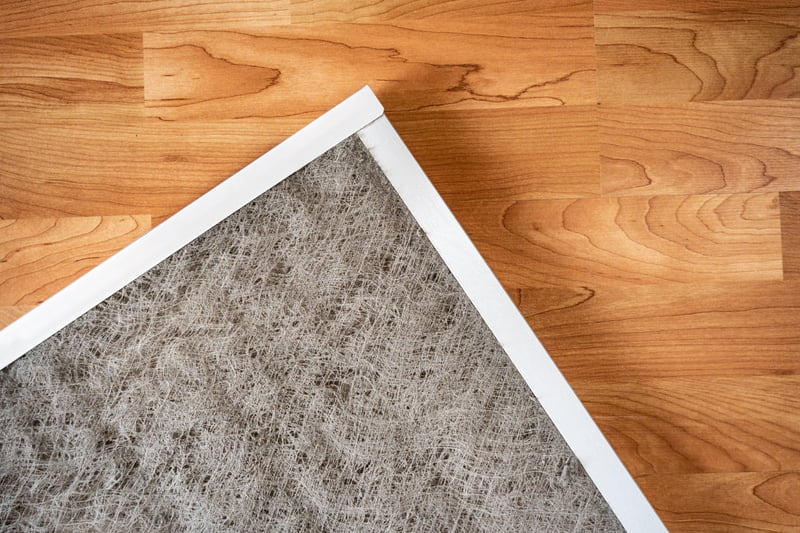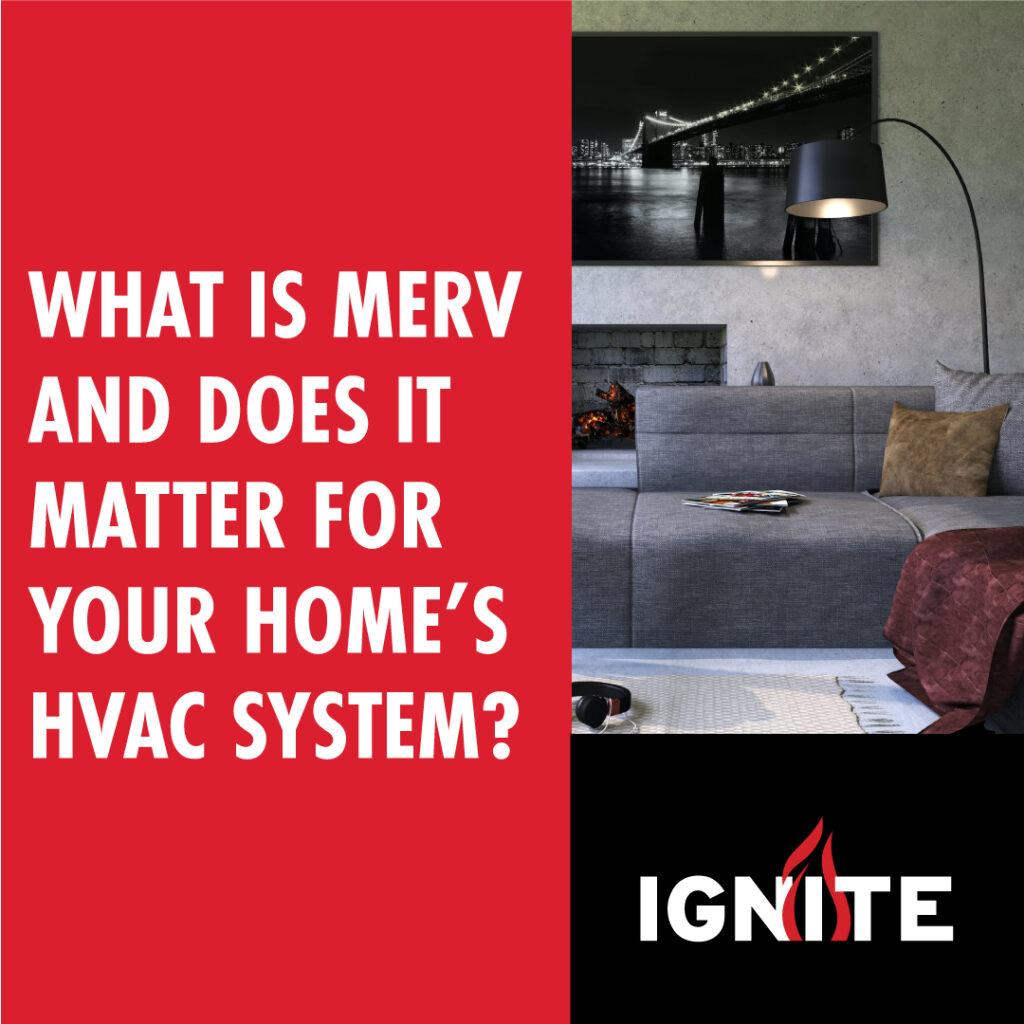If you’re researching furnace filters, you’ve likely seen the term ‘MERV rating.’
Usually, MERV ratings are associated with indoor air quality – the idea being that the higher your filter’s MERV rating, the better your air quality. Sometimes budget-wise websites share that you can get cheaper filters if you purchase a lower MERV rating. Maybe you’ve just had your ducts cleaned, and the technician recommended a different rating for your filter.
So what exactly is MERV, and which rating is best? MERV stands for Minimum Efficiency Reporting Value and refers to how much the filter will trap in a worst-case scenario. The scale goes from less than 20% of particulates trapped to 90% or better.
Which MERV Rating Is Best?
Since this rating refers to the efficiency of the filter, you might assume the higher the rating, the better, right? Not necessarily. Sometimes a filter can be so efficient that your furnace has to work extra hard to push air through your home. Finding the right rating involves finding a balance between keeping your home comfortable and not causing costly furnace repairs. One of the easiest things you can do regarding furnace maintenance is to choose an appropriate MERV rating for your filter. The bottom line for how to choose is to opt for the minimum needed efficiency – this will ensure your furnace isn’t working harder than it needs to, but also that you are filtering out what’s necessary for your desired air quality.
MERV Rating 6-8
A MERV rating of 6 is considered to be the minimal desired efficiency. MERV 6 will filter 35%-49% of larger particles (3.0-10 microns). This is enough to protect your HVAC system, but it won’t be near enough if you have furry pets. MERV 7 ranges from 50%-69% of the same scale particles, and MERV 8 filters out 70-85%. Ratings of 6-8 filters would trap things like pollen, dust, mould spores, and hair spray.
MERV Rating 8-10
When MERV ratings move up to levels 9 and 10, the percentage of larger particles stays at 85% or more, but these ratings also trap smaller particles, measuring 1-3 microns. MERV 9 filters less than 50% of these smaller particles, while MERV 10 traps up to 64%. These filters would be the more affordable option for those who suffer from allergies.

MERV Rating 11-13
A MERV rating of 11-13 ranges from 65%-90% for the smaller particles and 90% or better for the larger particles. This range is pricier than the lower ratings but less as high as MERV 14 or higher. Usually, MERV 11-13 is the highest residential filter rating and is extremely effective at cleaning your indoor air.
MERV Rating 14+
MERV 14 and above filter out particles as small as 0.3-1.0 microns. This level of filtration will clean even tobacco smoke and are usually only found in places like medical facilities and such. Anything above MERV 13 will restrict your airflow more than a residential HVAC system can handle. Not only can this make your air quality worse instead of better, but it will also put too much pressure on your air conditioner. This can lead to costly ac repairs as well as higher energy bills. If you’re looking to improve the air quality in your home beyond increasing your filter rating, you may want to look into a UVC purification system.
Serving the Edmonton area with top-quality HVAS services.
Check your filter today! If it is visibly dusty, it’s time to replace it – and what better time to choose the MERV rating that’s right for your home? At Ignite Heating, we understand that your filter and furnace work together for maximum efficiency of your heating and air conditioning while keeping your air quality at its best. We offer services to the Edmonton area, including St. Albert, and our customer service team is always happy to answer any questions you may have.

